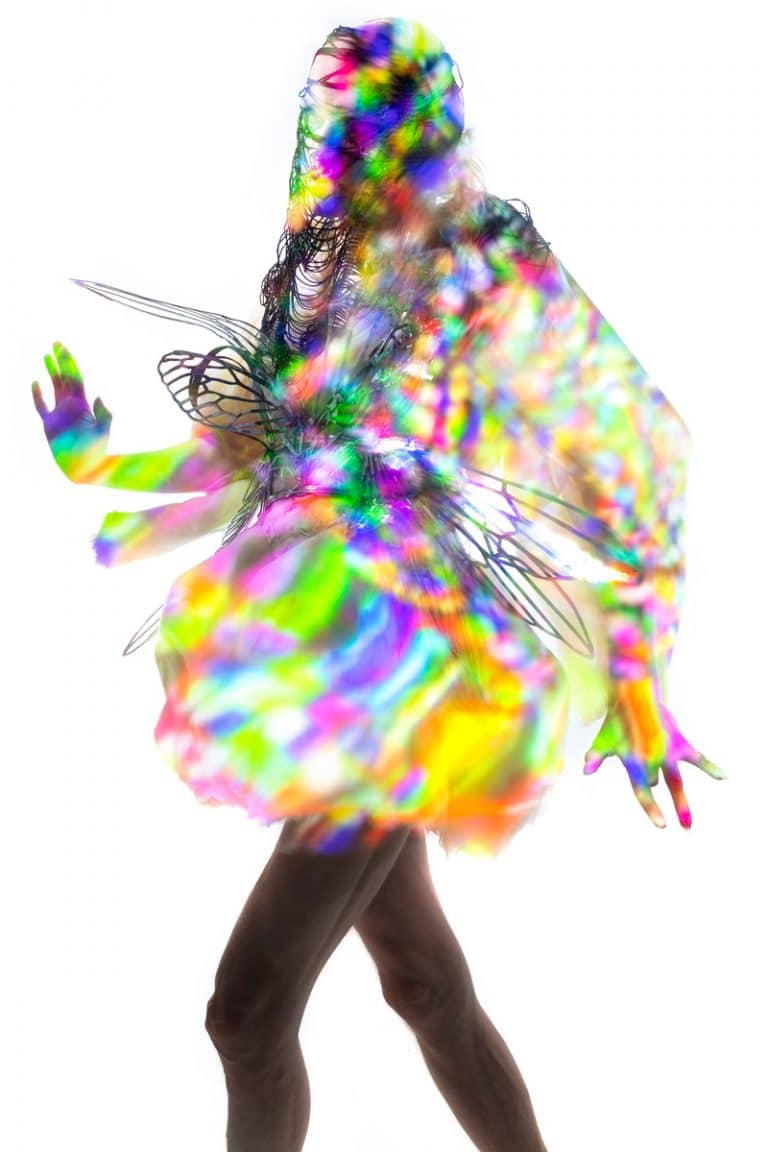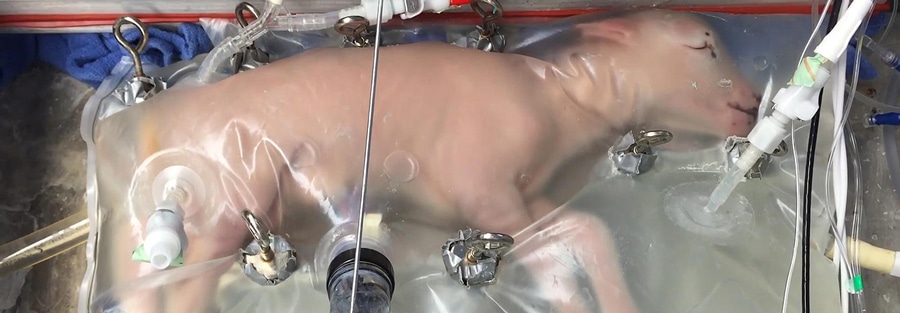
Opinion
What is an artificial womb and can it work for humans?
By Tasmin Lockwood
Opinion
What is an artificial womb and can it work for humans?
By Tasmin Lockwood
Updated May 18, 2020 at 05:02 PM
Reading time: 3 minutes
Human rights
Mar 26, 2020
In 2017, when a premature lamb was successfully grown to term inside an artificial womb, a ‘bio bag’, spectators argued that human fetuses would be next. In October 2019, Dutch researchers were awarded €2.9 million to develop a prototype. In a time of a pandemic where everyone is affected and people fear for their life, could artificial wombs represent a glimpse of hope for a better future?
Unlike existing incubators that provide artificial respiration, this technology simulates the biological environment and feeds the fetus oxygen and nutrients through tubes, in the same way the placenta and umbilical cord do. This would allow premature babies, whose lungs are often not developed enough to breathe air and have high mortality rates to grow to term outside the uterus, which is the largest supporting argument for the technology.
“Artificial wombs will help babies born prematurely survive. That’s the main help,” Zolton Istvan, a transhumanist figurehead running in the 2020 US presidential election as a Republican, told Screen Shot. “This is an intrinsic part of the transhumanist movement since it will use radical science to change an existing institution of humanity,” he added.

Artificial wombs could eliminate risks associated with pregnancy and childbirth although, currently, the mother is still an integral part of the birthing process—an embryo cannot be fertilised and planted in an artificial womb, first it must be partially grown inside a uterus. If this was possible, it would be what is called ectogenesis.
“It will also give women a third choice when it comes to abortion. Instead of aborting, they can have the fetus transplanted into an artificial womb,” Istvan added. “There’s a lot of fighting between pro-life and pro-choice, having a third choice regarding abortion will ease society’s divisiveness.” Terminating a pregnancy without having to end the life of the child presents vast social and ethical questions, such as an increased pressure on the state to provide the necessary equipment and resources. In 2018, there were 205,295 abortions in England and Wales.
Speaking to Screen Shot, Elizabeth Chloe Romanis, a lawyer and bioethicist at the University of Manchester, explains that “Access to choices in pregnancy are subject to lots of social, legal and medical control and we need to make sure that the artificial womb is not used to deny women access to reproductive healthcare like abortion.”
Although technology is not yet advanced enough for ectogenesis, many see bio bags, which could hinder female autonomy, as a stepping stone. Removing the natural dependency on women to have children could be integral in achieving true gender equality and balanced parenting. As a result of this, what it means to be a mother could be redefined.
At its very basic level, the technology would mean women no longer have to leave their jobs or go through labour, both things which Ivstan sees as positives. If neither parent was tied to a child physically, maternity and paternity leave would potentially equalise.
Giulia Cavaliere, a lecturer specialising in bioethics and reproductive technology at Lancaster Medical School, agrees with the fact that artificial wombs will allow women to become mothers “in the same ways as men became fathers,” by “enjoying all the positive stuff while not experiencing any of the negative physical, psychological, professional and personal effects.”
She added: “There are also other benefits; women who could not or would not want to gestate and birth children could still be able to have genetically related children. A society where women are less subjected to health-related risks is a better society.” This would be particularly impactful for women without a uterus, male same-sex couples and single males.
Itsvan explained that it is likely that women’s pay will increase as a result of the technology, because “women’s careers won’t be interrupted.” At the moement, growing embryos into babies outside of a womb is restricted legally and technologically, with no evidence an embryo can be taken to term from scratch with current bio bags, and it being illegal to do so.
Instead, legal definitions and potential backlash to existing functionalities must be managed. Romanis explained that “what is most interesting is how this will change some of our ideas about birth. A subject in an artificial womb is not completely born, even though they have been delivered from their mother, because they are still undergoing gestation and are not interacting with the external environment. The social response is hard to predict. Should we treat it like a foetus, or like a born baby?”
Regulation will play a part in this, determining whether artificial wombs are restricted for medical use. While “depicted as freedom and equality-promoting for all women,” as Romanis said, if used generally bio pregnancies could exaggerate class divide with fewer middle-class couples opting for natural pregnancy or, on the contrary, it could see vulnerable mothers who smoke, take drugs or are from a minority group being coerced into using the technology.
If artificial wombs become an option in the near future, it remains uncertain whether women will opt for it without good reasons as Romanis highlighted how invasive the procedure would be. Although it is facing important financial, technological and legal hurdles, the continued development of this niche health tech no doubt holds the key to both true gender equality and widespread social controversy. As controversial as they are, artificial wombs are also something exciting to look out for in the near future—a positive thing to think about while stuck at home.




